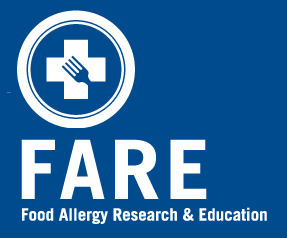Food Allergy Research and Education (FARE) announced today the launch of the FARE Clinical Network. The effort aims to accelerate the development of therapies and promote best practices for the care of people suffering with food allergies.
FARE has pledged an investment of $2 million annually to the network, whose inaugural members are:
- Ann & Robert H. Lurie Children’s Hospital of Chicago
- Arkansas Children’s Hospital Research Institute
- Boston Children’s Hospital
- Children’s Hospital Colorado
- Children’s Hospital of Pittsburgh of UPMC
- Children’s Mercy Kansas City
- Children’s National Health System
- Cincinnati Children’s Hospital Medical Center
- Jaffe Food Allergy Institute, Icahn School of Medicine at Mount Sinai
- Joe DiMaggio Children’s Hospital – a facility of Memorial Healthcare System
- MassGeneral Hospital for Children (Boston)
- National Jewish Health (Denver)
- Rady Children’s Hospital/University of California, San Diego
- Riley Hospital for Children at IU Health
- Sean N. Parker Center for Allergy Research at Stanford University
- Texas Children’s Hospital Food Allergy Program, Baylor College of Medicine
- The Children’s Hospital of Philadelphia
- The Northwest Asthma and Allergy Center (Seattle)
- The University of Chicago Medicine
- UNC Food Allergy Initiative at the University of North Carolina at Chapel Hill
- University of Arizona College of Medicine – Tucson
- UT Southwestern Medical Center and Children’s Medical Center Dallas
Member centers will also contribute to a national food allergy patient registry and biorepositories.
“We need to push for the development of drugs and other therapies to prevent life-threatening food allergy reactions, while ensuring that children and adults with food allergy receive the best care possible,” said James R. Baker, Jr, MD, CEO and Chief Medical Officer of FARE. “To that end, FARE will direct the Clinical Network centers of excellence across the country to a common goal of ensuring that patients with food allergies have access to state-of-the-art diagnosis, treatments and research. We will continue to expand the number of centers to provide access to more patients. This effort is fundamental to our mission — to improve the quality of life and the health of individuals with food allergies while providing them hope through the promise of new treatments.”





